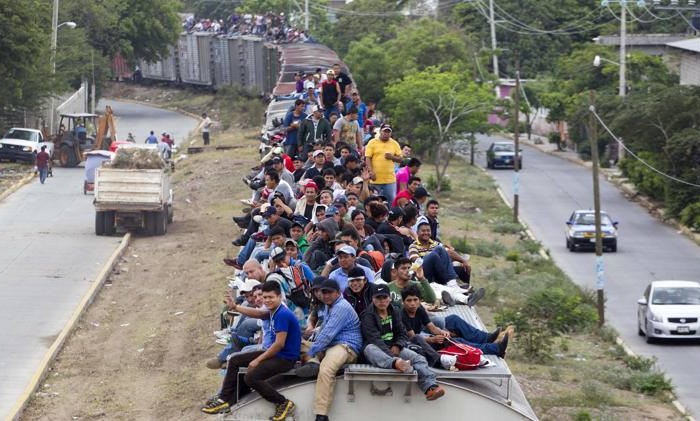The Iran Framework Disagreement and 50/50 chance of U.S. China War
Last week we anticipated that no deal would be better than a bad deal. But this week it seems hard to know exactly what deal has been agreed. Each of the parties in the negotiations with Iran over its nuclear capability seems to have a different interpretation of what the much-heralded framework deal contains or means. But what is clear is that the framework is not only bad, but sloppy.
As HJS’s new briefing out this week makes clear, there is not even any single agreed upon framework proposal in the deal. Indeed, as our briefing outlines, the joint Iranian-EU statement made on 2 April had a number of differences to the one made by President Obama on the same day. Indeed the French fact-sheet on the framework contradicts the U.S. version, with the U.S. one appearing more stringent and implying sanctions relief would be staged – a claim that is, in turn, denied by Iran.
There seems to be an ongoing dispute over what has been agreed in regard to inspections. There is an ongoing lack of clarity on what this all now means for regional proliferation (in particular now that every other country will want to get their own nuclear assurance). And there is a deeply disconcerting anomaly about the number of centrifuges Iran needs. The framework deal seems to allow Iran to have 6,000 centrifuges, when it is generally agreed that the country would require no more than 2,000, if this were truly about the country’s search for nuclear technology limited solely for civilian use.
In all of its negotiations, Iran appears to have played a steady and consistent hand. But this is in stark contrast to the shifting moves by the P5+1. Only eighteen months ago President Obama agreed that the Fordow facility, its heavy water reactor and advanced centrifuges, were not necessary for the development of a civilian nuclear capability. Under the framework that seems to have been agreed in Switzerland, all of these capabilities remain in place.
So why the anomalies and why the uncertainties? Because it seems at present that the P5+1 agreement in Lausanne is aimed more at instilling confidence back home in the West than it is about coming to the best deal to prevent Iranian enrichment and development beyond civilian levels. There has been a steadily rising opposition to this deal from the general public in the U.S. and at the highest levels of experienced policy-makers, bolstered this week by the intervention of Henry Kissinger and George Shultz. The administration in Washington appears to be trying to placate this position while also trying to placate the Iranians. If there is a reason why the framework so far seems such a fudge it is because these two positions cannot be reconciled.
But neither can they both be danced around for long. The end aim of this process should not be to buy off critics of the Obama administration in Washington, but rather to prevent Iran from ever acquiring weapons grade nuclear capability. From the reaction to the agreement so far it seems that the Obama administration has achieved the impressive feat of failing in both these objectives.
 FROM THE DIRECTOR’S DESK
FROM THE DIRECTOR’S DESK
There is a 50:50 chance of a war between the USA and China in the next 15 years. Not my words, but those of Professor Christopher Coker, the world’s leading international relations academic and a visiting speaker at HJS this week.
It would be fair to say that despite its size and growing importance on the world stage, China is a subject under-discussed in the UK. There are very few Sinologists located here, and political and media opinion on the subject tend to be dominated by the economic relationship – with the odd nod to human rights concerns when our leaders think they can get away with pointing out China’s many abuses without incurring its wrath in the form of trade restrictions in return. This is a pattern witnessed across Europe, where the relationship with China has become completely unbalanced in China’s favour, and our leaders are wary of speaking the truth for fear of offending a vital trading partner.
But as Professor Coker reminded us, ‘in times of peace, prepare for war’. China is the only real global challenger to the U.S., and therefore to our own liberal democratic and economic system, but it sees the international system today as made in America. This does not fit with the vision of a nation which was the world’s dominant power before 1820 and sees itself as returning to that trajectory.
Nothing is predetermined of course, and there are doves as well as hawks within the Chinese leadership. But the latter will have been emboldened and even inspired by Russia’s example of remaking the international system in its neighbourhood. Given the many tinderbox situations in East and South East Asia which have China as one of the potential protagonists, is it so far-fetched to assume that China will not at least try to probe the U.S. commitment of security guarantees for many of its neighbours in a bid to start supplanting U.S. influence in its own backyard?
As we have seen over the past few years, our leaders are often fixated by short-term threats rather than the ones just over the horizon. Coker’s analysis reminds us of the importance of vigilance in international affairs. And it deserves to be taken seriously.
Dr. Alan Mendoza
Executive Director of The Henry Jackson Society
Follow Alan on Twitter: @AlanMendoza



